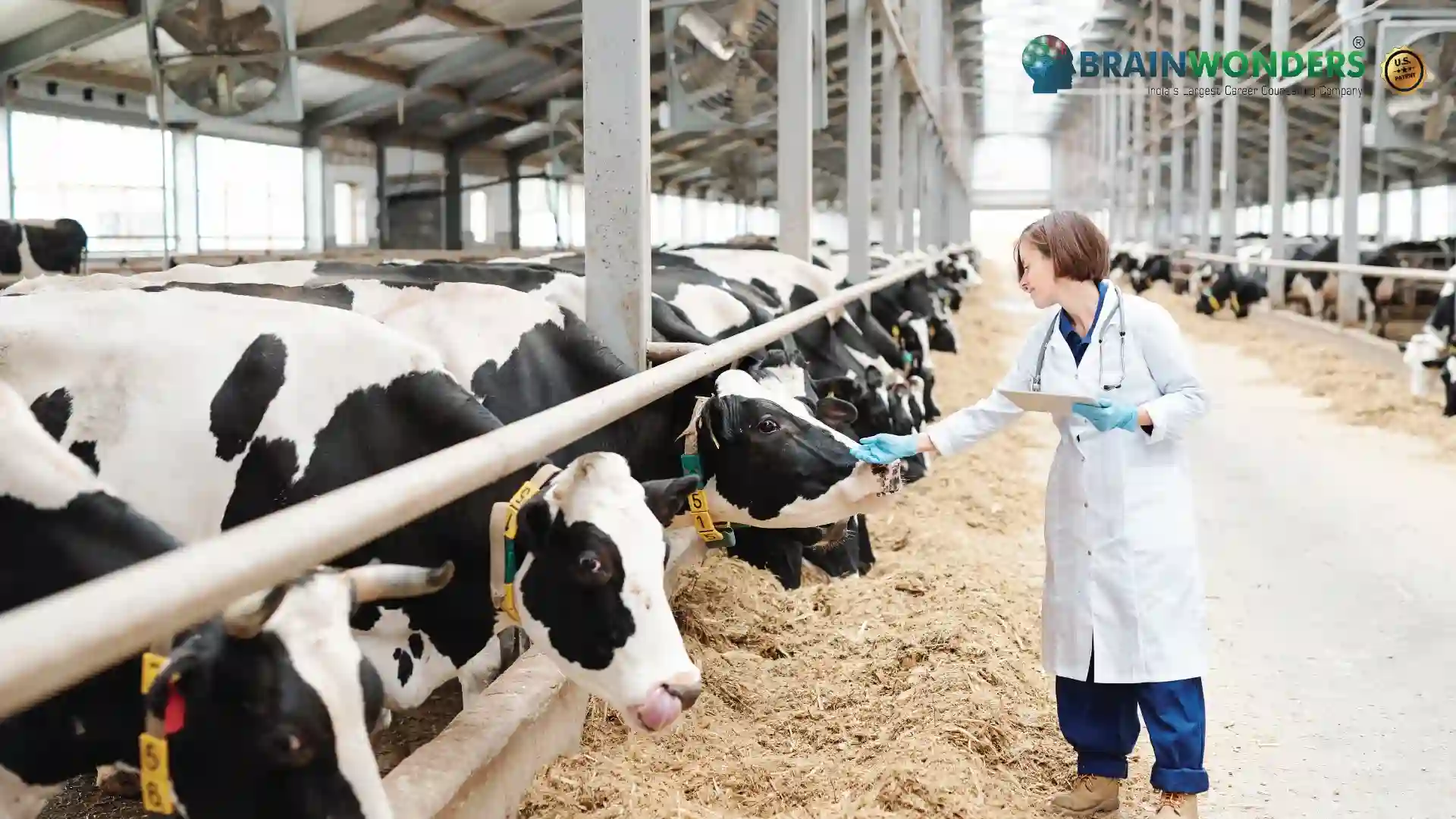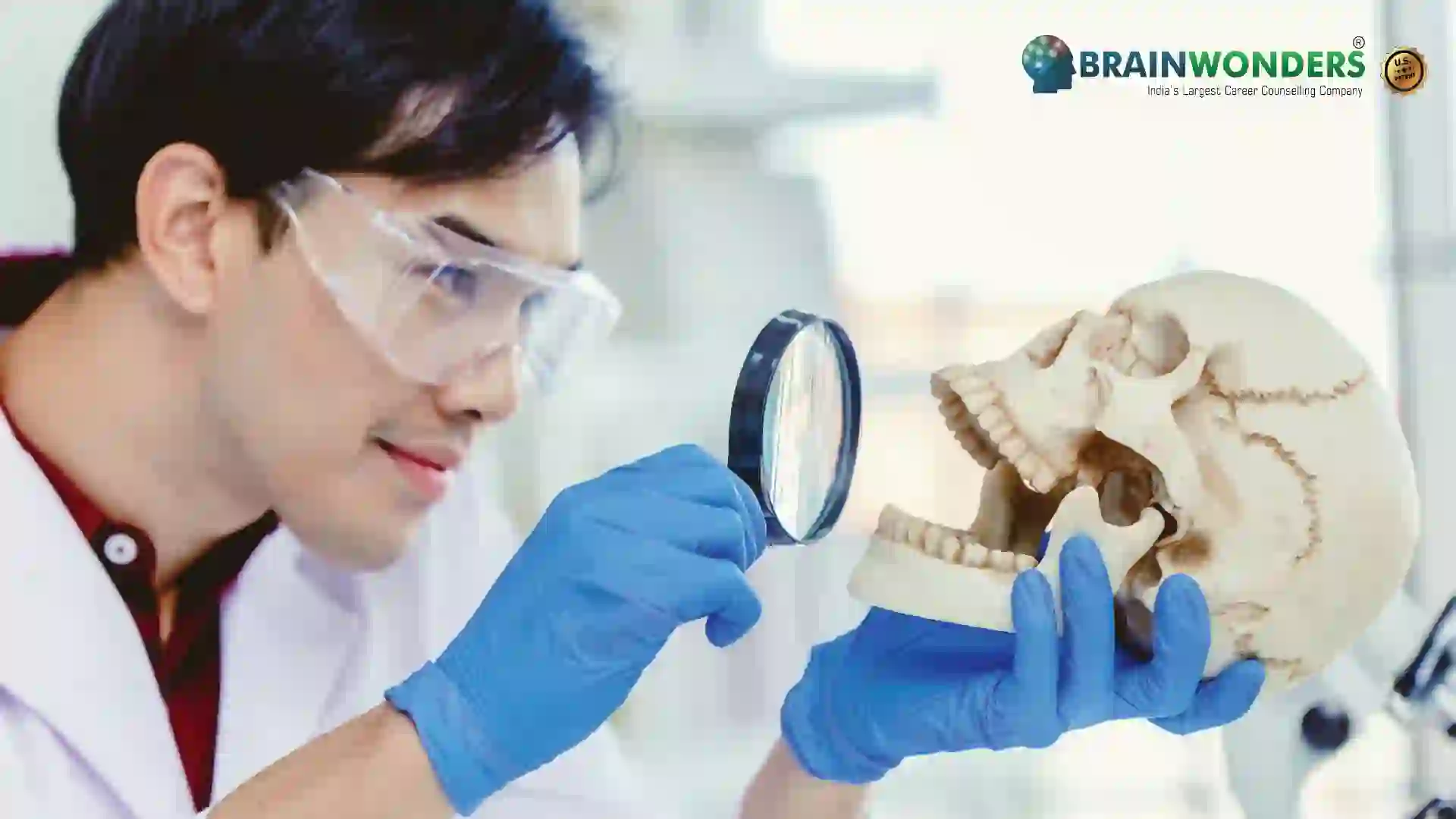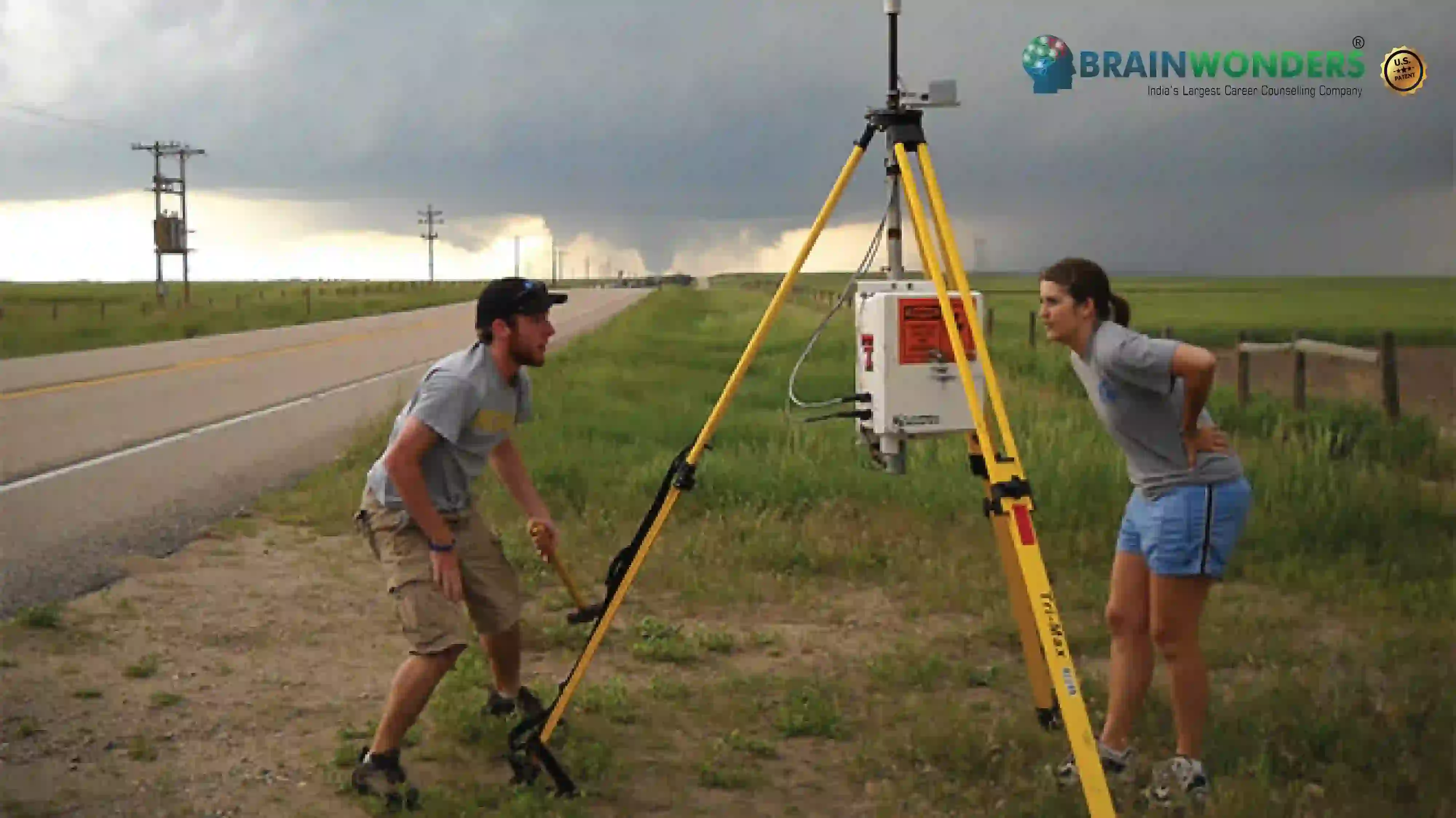How to become an Animal Scientist
Overview, Courses, Exam, Colleges, Pathways, Salary

Overview
Who is Animal Scientist ?
Animal science is the study of animals that interact with humans in a human-dominated environment. Animals provide food, fibre, employment, and friendship to humans all across the world, and humans rely on them for these things. Animal scientists aid us in our efforts to better understand and manage these species. Research on a broad variety of domestic animal species is conducted by animal scientists, who often study with cattle in order to get a better understanding of the molecular and chemical systems that drive their development. Animal scientists play an important part in the preservation and improvement of the quality and quantity of the country`s food supply. They might also be more research-oriented, working in the zoological or veterinary fields to aid in the protection of the health and well-being of wild and captive animals, for example. They could have a specific interest in reproduction, nutrition, genetics (animal geneticists), or development in general.
When it comes to efficient food animal production, the processing and consumption of high-quality meats and dairy products, the use of companion animals for recreation or leisure, animal health and well-being, and animal health and well-being, a career in one of the many animal sciences fields could be your ticket to a rewarding future. Obtaining an education and training in animal science may prepare you for satisfying professions in a range of disciplines such as animal production, breeding, health maintenance and disease management, marketing, processing, distribution, and a number of related service sectors, among others. A suitable major for biologists who wish to work with animals after completing veterinary, medical, or dental school or graduate school is also available.
For animal scientists to be able to research and apply the complex ideas involved in animal production, care, and utilisation, they must have had formal training as well as relevant experience. Everyone who wants to work in the animal sciences must take courses in animal behaviour and management, genetics, microbiology, nutrition, physiology, reproduction, and meat science, among other subjects. A background in agriculture or animal husbandry, on the other hand, is not required for this position.
Typical day at work
What does Animal Scientist do?
Job description, Profiles, Roles and Duties:
- Analysis of animal nutrition needs and nutritive evaluation of animal food supplies
- Guide producers on new products and methods which could boost their efforts in animal production
- Come up with improved animal feeding, housing, sanitation, or parasite control and disease management practices
- Pen down or communicate research results orally to the scientific community, manufacturers and the public
- Research the impact on quality and quantity of animal products, like eggs and milk, of management activities, production methods, feed or environmental conditions
- Carry out animal nutrition, breeding, or management research to enhance the products or processes
- Investigation and control of the animal selection and breeding processes to improve production effectiveness and the quality of animals
- Define animal population’s genetic composition and trait heritability, utilizing genetic principles
- Achieve novel blends of desired characteristics by crossbreeding animals with existing or cross strains
- Carry out research and experiments regarding animal welfare
- Create ways to increase the number of farm animals and their quality
- Carry out basic studies to classify species with suitable characteristics
- Utilizing science to facilitate farms and food producers to yield greater quantities of food
- Instruct farms and pet owners on how to care for animals appropriately
- Studying animal eating patterns to form healthy pet food recipes
- Track laboratory tests, conduct office studies or recommend programs to field clients
Abilities and Aptitude needed
What are the skills, abilities & aptitude needed to become Animal Scientist?
In many situations, animal scientists establish their own ideas and research procedures that are tailored precisely to their needs and objectives. Additionally, they often supervise teams of technicians or students who support them in their day-to-day operations. Strong communication and listening talents are required in order to do this. Scientists that study animals study their genetics, nutrition, evolution, reproduction, illnesses, and development. They have a particular interest in food production and animal husbandry, but they are also interested in animal husbandry more broadly. When it comes to animal breeding programmes, animal scientists may use crossbreeding to create innovative combinations of desirable qualities that they can then include into their breeding programmes. As a result, they should have a thorough awareness of plant and animal species, as well as their tissues, cells, functions, interdependencies, and communications with one another and with the surrounding environment, among other things.
Animal housing can be improved, animal mortality rates can be lowered, waste material can be managed more efficiently, and overall productivity in the livestock business may be boosted under their guidance. They should thus be acquainted with the procedures and instruments that are used in the growth and harvesting of food for human and animal consumption (both plant and animal), as well as the methods of storage and treatment that are employed in these activities. It is expected that they will spend a significant amount of their time conducting clinical trials or preparing for animal-based research projects. Logical thinking and problem-solving abilities are required for this to be successful. - A peer-reviewed journal or other periodical is used to publish the findings of this study when it has been completed and approved.
Pathways
How to become an Animal Scientist?
Entrance Exam
Entrance Exam for Animal Scientist ?
Courses
Which course I can pursue?
Best Colleges
Which are the best colleges to attend to become an Animal Scientist?
Industries
Which Industries are open for Animal Scientist?
- Agricultural and Livestock Production
- Animal Nutrition and Feed Companies
- Veterinary Medicine and Research
- Biotechnology and Pharmaceutical Companies
- Zoos and Wildlife Conservation
- Government Agencies and Regulatory Bodies
- Animal Health and Wellness Products
internship
Are there internships available for Animal Scientist?
Yes, internships are available in various industries that provide hands-on experience in conducting research, data collection, animal handling, and laboratory work. They are often offered by universities, research institutions, government agencies, agricultural companies, and animal health organizations to provide practical training and exposure to the field.
Career outlook
What does the future look like for Animal Scientist?
Animal scientists may be found working in a wide range of contexts, including educational institutions and research centres, business enterprises, and the United States government, among many others. Various places, including offices, labs, and the open air, are available for them to conduct their research in. When they are not working in laboratories or offices, they are most likely to be working on reports for their supervisors and coworkers. A car is required for the gathering of data during field research since it is necessary to drive to farms or processing plants, which is not possible without one. Work in research may be available for engineers and food producers, as well as educational institutions and government organisations. The bulk of their time will be spent doing research and analysis, and they may be reimbursed for their efforts.
People who want to work in the field of animal protection may find it more advantageous to work for animal welfare organisations or independent contractors rather than for law enforcement authorities if they have a strong passion to help animals. Animal scientists have been able to raise the overall quantity of food produced via the application of scientific research and study. Due to the necessity to enhance food production in order to fulfil the demands of a growing global population, it is expected that the need for animal scientists would rise in the next decade.





